Posted on 3/28/2025
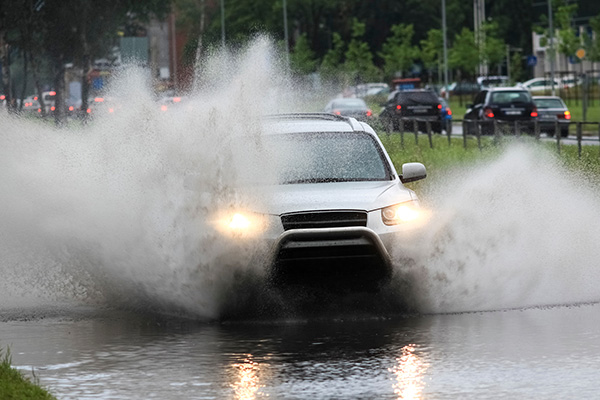
Many drivers don’t think twice about driving through puddles, especially after heavy rain. But water on the road isn’t as harmless as it seems. Even a small puddle can hide deep potholes, and larger pools of water pose serious risks to your engine, brakes, and electrical components. If you’ve ever wondered whether driving through puddles can actually damage your car, the answer is yes—it definitely can. How Water Affects Your Engine and Air Intake Your engine needs air to function properly, and modern vehicles have low air intakes that can easily suck in water if you’re driving through deep puddles. When water enters the intake, it can cause a condition known as hydrolock, which prevents the engine from running. Unlike air, water can’t be compressed, so when it enters the cylinders, it can cause severe internal damage, including bent connecting rods ... read more
Posted on 2/28/2025
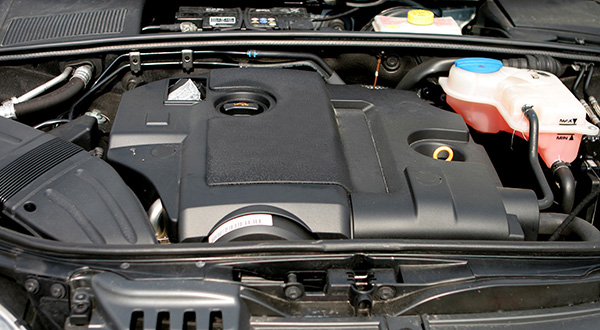
Engines aren’t silent, but they shouldn’t suddenly get louder, rougher, or make unusual noises. If you hear knocking, rattling, hissing, or squealing sounds from under the hood, it could be a sign of an issue that needs immediate attention. Some engine noises stem from minor problems, while others could indicate serious mechanical failures that lead to costly repairs if ignored. Recognizing the cause on time will help you prevent major engine damage and expensive fixes. Common Causes of Engine Noise Engines make noise naturally, but changes in sound usually mean something is wrong. The type of noise you hear can point to different underlying problems, from simple fixes to severe issues. Exhaust System Leaks and Muffler Damage A louder-than-normal engine often means something is wrong with the exhaust system. This system reduces engine noise, directs exhaust gases safely away, and improves performance. If there’s a leak ... read more
Posted on 1/31/2025
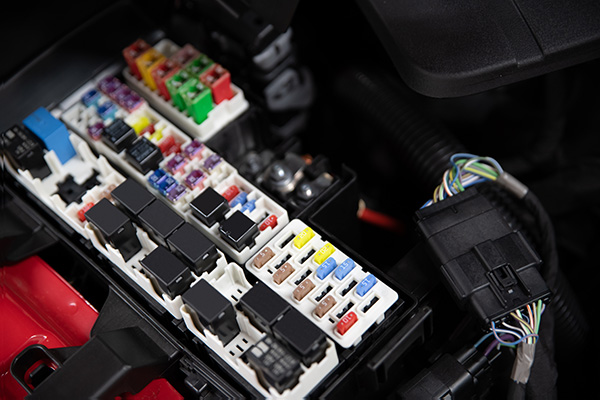
Car electrical issues can be frustrating and difficult to deal with, especially when they interfere with the functionality of your vehicle. Whether it’s a faulty battery, unresponsive lights, or a malfunctioning infotainment system, electrical problems often disrupt your driving experience and demand immediate attention. But how are these issues diagnosed and fixed efficiently? Why Car Electrical Issues Need Prompt Attention Your car’s electrical system is the backbone of its operations, powering everything from the ignition to the headlights and air conditioning. When something goes wrong, it doesn’t just impact your comfort—it can compromise your safety. Ignoring electrical problems can lead to more significant issues, including complete system failures. This is why a prompt and accurate diagnosis is crucial. How Do Experts Pinpoint the Problem Diagnosing electrical issues requires specialized tools ... read more
Posted on 12/20/2024

Being stranded on the road with a car that just won’t move can be frustrating, especially when you’re unsure what went wrong. While regular maintenance can help prevent major issues, some problems can leave you with no choice but to call for a tow. In Newport News, VA, our towing services are there to save the day when your car decides it’s had enough. So, what are the top car issues that require towing? Let’s explore. 1. Dead Battery A dead battery is one of the most common reasons drivers find themselves stuck. While jumper cables can sometimes bring your car back to life, there are instances when a battery is beyond saving. Extreme temperatures, prolonged inactivity, or an old battery can lead to this problem. If your car doesn’t start despite your best efforts, you’ll likely need a tow or a new battery delivered to you. 2. Engine Failure An engine that stalls or refuses to start is ano ... read more
Posted on 11/29/2024
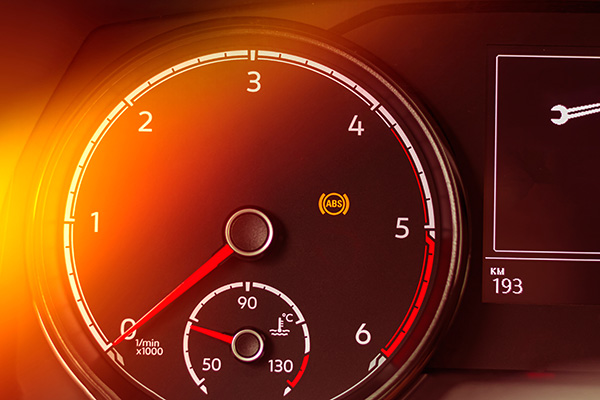
Have your dashboard lit up with warnings about ABS or traction control? While these systems are essential for safety, they’re heavily dependent on one component—the speed sensor. When speed sensors fail or malfunction, they can throw your vehicle’s safety features into chaos. Let’s explore how these small but essential devices affect ABS and traction control and why keeping them in working order is so important. Speed Sensors and Their Role Speed sensors are designed to measure the rotational speed of your car’s wheels. This data is then sent to the vehicle’s electronic control unit (ECU), which is used to manage various systems, including ABS (Anti-lock Braking System) and traction control. For ABS, the speed sensors provide real-time information to prevent wheel lock-up during sudden braking. By knowing which wheel is slowing down faster than the others, ABS adjusts the ... read more
Posted on 10/31/2024
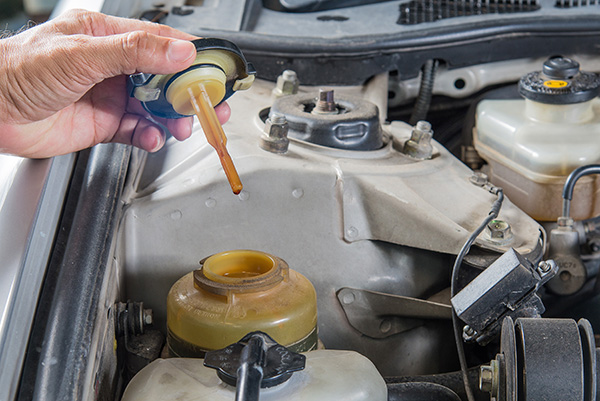
Leaking power steering fluid is more than just an annoyance—it can be a warning sign of underlying problems that could affect your ability to control your vehicle. Power steering fluid is essential for smooth and effortless steering, but when it begins to leak, it can create steering difficulties and potentially lead to costly breakdowns. Wondering what might be causing the leak? Let’s explore the most common reasons for power steering fluid leaks and how you can address them before they become a bigger issue. Several components in the power steering system can wear out or get damaged over time, leading to fluid leakage. Identifying the root cause is critical to ensuring a reliable fix. Here are some of the usual suspects: Worn or Damaged Power Steering Pump The power steering pump is at the heart of your car's steering system. It’s responsible for pressurizing the fluid to help you steer with minimal effort. Over time, the pump&rsq ... read more
Posted on 9/27/2024

When shopping for a new car or contemplating an upgrade, one of the most discussed factors is fuel efficiency. Many people believe that smaller engines automatically equate to better gas mileage. It's a common assumption that a smaller engine will consume less fuel because it has less power to produce. But does this hold true in every case? Engine Size and Fuel Efficiency The logic behind smaller engines offering better fuel economy seems straightforward: fewer cylinders and less displacement should mean less fuel consumption. However, the reality is a bit more complex. The fuel efficiency of an engine is influenced by various factors beyond just its size. Engine Efficiency and Technology Modern advancements in automotive technology have significantly altered how engine size impacts fuel efficiency. For example, turbocharged engines, which can be smaller in size, often perform better than larger naturally aspirated engin ... read more
Posted on 8/30/2024

Owning a pickup truck comes with a unique set of responsibilities. These rugged vehicles are designed to handle challenging tasks, from hauling heavy loads to navigating rough terrains. But to keep your pickup truck running strong and reliable, regular maintenance isn't just an option—it's a necessity. Whether you use your truck for work or recreation, understanding the benefits of routine upkeep can save you time, money, and a whole lot of headaches down the road. Extend the Lifespan of Your Truck One of the most significant advantages of regular maintenance is that it extends the lifespan of your pickup truck. Trucks are built to last, but without proper care, even the toughest vehicle will wear out prematurely. Routine checks and timely replacements of essential components, such as the engine oil, transmission fluid, and brake pads, can prevent major breakdowns. By sticking to a maintenance schedule, you ensure that your truck stays in pe ... read more
Posted on 7/26/2024
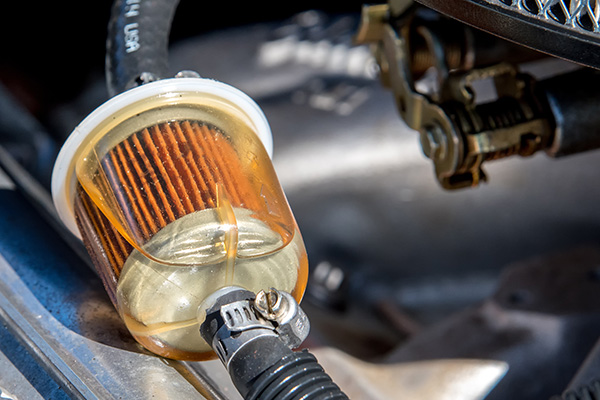
We've all had those moments where something just doesn't seem right with our cars. Maybe it's a strange noise or a sudden change in how it drives. But what if you notice a strong smell of gasoline? This could indicate a gas leak, a problem that demands immediate attention. The question is, should you drive your car to a nearby repair shop if you suspect a gas leak? Understanding the risks and safety measures associated with gas leaks is crucial for making the right decision. The Dangers of Gas Leaks Gas leaks are incredibly hazardous due to the highly flammable nature of gasoline. Even a small amount of gas leaking can lead to a fire or explosion if it comes into contact with a spark or a hot surface. Modern vehicles have many electrical components that can produce sparks, which means the danger is always present. Beyond the risk of fire, gas leaks pose a significant health hazard. Inhaling gasoline fumes can cause dizziness, headaches, and n ... read more
Posted on 6/27/2024
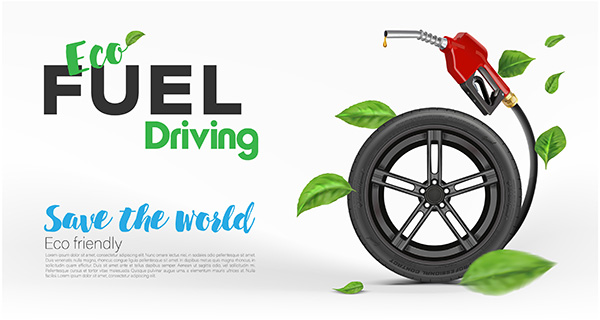
With rising fuel costs and growing environmental concerns, improving your car's fuel efficiency is more important than ever. Whether you're a daily commuter or someone who enjoys weekend road trips, enhancing your vehicle's fuel economy can save you money and reduce your carbon footprint. But how exactly can you achieve this? Let's explore some practical and effective ways to improve your car's fuel efficiency. Fuel Efficiency Before sharing the tips, let's explain what fuel efficiency means. Fuel efficiency refers to how well a vehicle converts fuel into energy to power the engine. It's typically measured in miles per gallon (MPG). The higher the MPG, the more efficient the vehicle is at utilizing fuel. Improving fuel efficiency saves money on fuel, reduces the frequency of fill-ups, and lowers greenhouse gas emissions. Regular Maintenance is ... read more